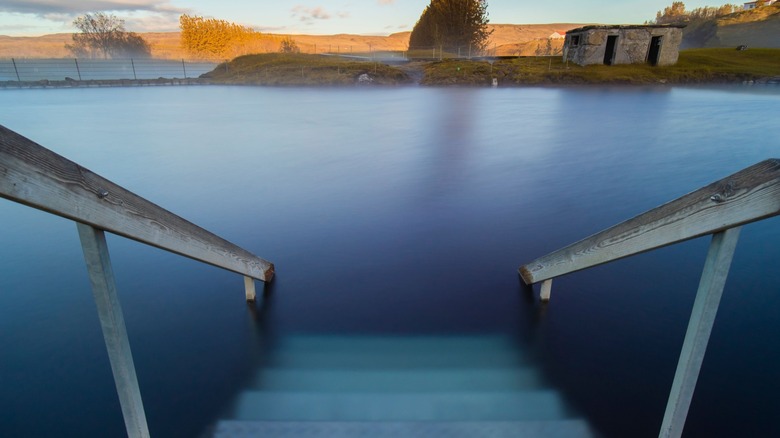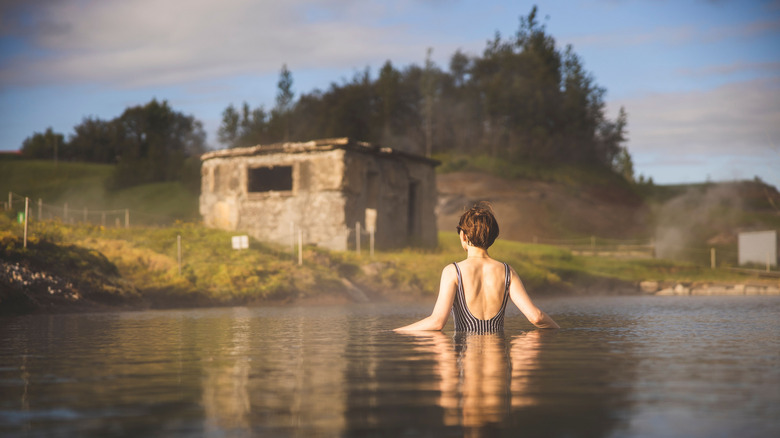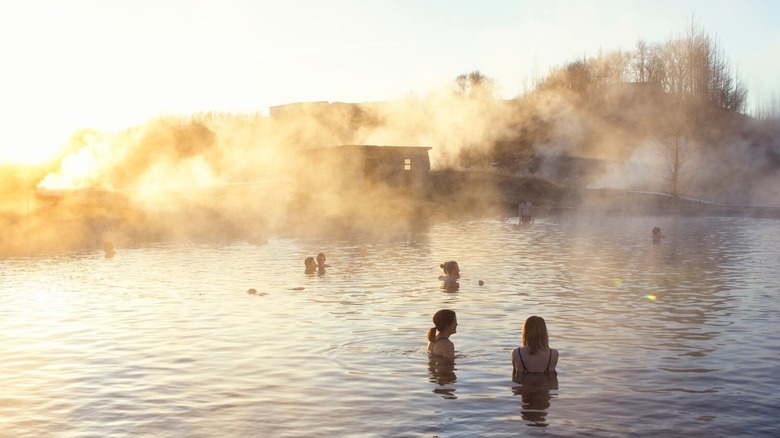Travelers have been coming to Iceland for years to enjoy outdoor adventures in an exquisite natural environment. One of the main draws of the Land of Fire and Ice is its geothermal pools. Local Icelanders have been bathing in these mineral-rich hot springs for centuries, but they have also caught on as a popular tourist activity. In recent years, the Blue Lagoon has become one of the country’s top attractions, receiving 700,000 visitors annually. The facilities are impeccable, providing amenities like silica mud masks, massage waterfalls, luxurious bathrobes, and a swim-up bar in a beautiful, azure-colored setting. But its popularity does have some downsides — the pool is always crowded, with hordes of influencers continuously snapping selfies; the cost is exorbitant, at a whopping $75 for the lowest-priced package; and you must book in advance, which might be challenging if you’re a more spontaneous traveler.
So, if you’re looking for a more authentic, less-crowded alternative, consider a thermal escape at the Secret Lagoon. According to its website, Gamla Laugin (as it’s known to locals) “is the oldest swimming pool in Iceland … made in 1891.” This historic attraction in the village of Flúðir is a popular stop on the Golden Circle route, a 155-mile scenic loop in southwest Iceland.
Hanna Ashcraft, founder of the travel company Moderately Adventurous, compared her experiences at the two pools on her blog, sharing that while the Blue Lagoon is like a “theme park,” the Secret Lagoon was a place “to experience what Icelandic locals enjoy” and “a cultural tradition of relaxation.” Meanwhile, another recent visitor to both spots noted in a review on Tripadvisor that the Secret Lagoon was a “good value option” and “relaxed without the Tik Tok Influencers you find at the Sky and Blue Lagoons.”
How to experience the Secret Lagoon
The lagoon is open year-round, with two operating seasons. During the winter season (October 1 to May 31), you can visit from 10:00 a.m. to 7:00 p.m., while the hours are extended to 8:00 p.m. during the summer season (June 1 to September 30). Note that tourists flock to the country in the summer months, particularly during this brief window of time when it’s best to visit Iceland — and geothermal soaks are certainly less jarring when the weather is warmer. However, while a winter visit will be a chilly experience, with air temperatures dropping as low as 26 degrees Fahrenheit, there will be fewer tourists. Plus, you’ll warm up quickly in the hot water (which is always between 100 to 104 degrees), and if you’re lucky, you’ll be treated to the spectacular light show of the aurora borealis dancing across the sky as you relax in nature.
At the time of this writing, one adult entrance ticket (15 years and up) costs $32, while a child’s ticket (14 years and under) is a very affordable $1.50 (one adult must accompany at most three children). Swimsuit and towel rentals come at an additional cost. While tickets don’t need to be pre-purchased, it is recommended to guarantee your spot. Book a visit during the week to have an even quieter experience.
The facilities here are modern and clean but more natural and simple compared to those at the Blue Lagoon. One on-site bistro serves up drinks and snacks (but no meals). Before or after your swim, you can walk along a path surrounding the pool to see mini-geysers and small boiling fumaroles in the area. If you’d like to base yourself nearby, the fully-equipped Garður Stay Inn is right next door. One night, including access to the Secret Lagoon, starts at $250.




